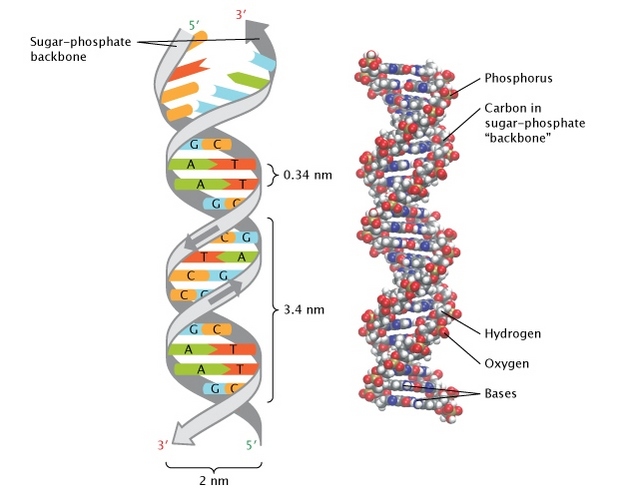 |
Craig White's Literature Courses Evolution & Evolutionary Narrative see also Future Narratives Compared |
  |
Due to the "Culture Wars" between tradition and modernity and Evangelicals and secularists, evolution is a loaded word, but its most basic meaning involves continuity plus change—the past turns into the future with or without sharp breaks. The past changes but continues to live in the present and future.
For example, each human, whether they believe in evolution or not, carries genes and chromosomes from thousands of ancestors, and our children will carry our talents, eye color, and predispositions to health and disease into a future we'll never see.
Literary and cultural history mostly refer to cultural evolution rather than biological evolution, which are analogous but not identical.
In both cases, evolution describes how one form, idea, or belief turns into another even while sometimes keeping the same name.
Or the same name, word, term, or sign may describe something that has changed significantly since the word became attached to the thing. (etymology)
Use of the word "evolution" naturally scares some students and teachers away from potential controversy or heresy.
Whether you "believe" in evolution or not, most people "think" evolution as a part of everyday common sense, especially in a capitalist society devoted to rapid change, competition, survival of the fittest, winners and losers, and "Creative Destruction" as a process by which old economic models die to make way for newer, bigger, more efficient business models based on the successes and failures of the past. (e.g., Walmart destroys downtowns and "mom & pop stores," which people may regret, but their shopping habits drive the change whether they know it or not.)
![]()
Oxford English Dictionary. Evolution:
7a. A process of gradual change occurring in a system, institution, subject, artefact, product, etc., esp. from a simpler to a more complex or advanced state. Also: a gradual and natural development as opposed to a sudden or instigated change (often in contrast with revolution).
8a. Biol. The transformation of animals, plants, and other living organisms into different forms by the accumulation of changes over successive generations; the transmutation of species
b. theory of evolution n. (in general) the proposition that all living organisms have undergone a process of alteration and diversification from simple primordial forms during the earth's history; (in particular) a scientific theory proposing a mechanism for this process, now esp. that based on Darwin's theory of the natural selection of genetically inherited and adaptive variation
Neo-Darwinism: A theory of biological evolution (widely accepted since the 1920s) based on Darwin's theory of natural selection but incorporating the theories of later biologists regarding genes, inheritance, and mutation . . . .
![]()
Reasons to be aware of evolutionary thought regardless of religious resistance:
Answers to questions about the world's age can feel irrelevant to most people's daily lives. Few people fight or argue about such issues on a daily basis, and most people don't feel the need to set forth a hard and fast opinion unless directly challenged.
Modern science overwhelmingly upholds the theory of evolution. All the medical doctors you trust with your and your family's health and lives are trained in modern biology, which cannot be comprehended without reference to evolution.
The gasoline powering the car you drove today derives from "fossil fuels": oil, coal, and natural gas created by decomposition of plants and animals that died millions of years ago.
The capitalist economics dominant in the modern West and the USA draws its symbols and narratives from Darwinian evolution, which provide most of the metaphors by which people speak of capitalism. In its unregulated, freemarket form, capitalism is sometimes referred to as "Social Darwinism," which (as in recent decades) creates profound inequality (separation of winners & losers, rich and poor, fit and unfit—compare Millennialism's "saved and damned."
Language of Freemarket Capitalism / Social Darwinism
![]() survival of the fittest
survival of the fittest
![]() dog-eat-dog
world . . . it's a jungle out there.
dog-eat-dog
world . . . it's a jungle out there.
![]() big fish
eats little fish . . . corporate sharks
. . . swimming with the sharks . . . are you a sheep or a shark? . . . bottom-feeders
big fish
eats little fish . . . corporate sharks
. . . swimming with the sharks . . . are you a sheep or a shark? . . . bottom-feeders
![]() predatory
lenders (from subprime-mortage scandals of 2000s)
predatory
lenders (from subprime-mortage scandals of 2000s)
![]() making a killing; killer instinct
making a killing; killer instinct
![]() cut-throat competition
cut-throat competition
![]() "Business cycle"; bear-market, bull-market
"Business cycle"; bear-market, bull-market
![]() sign in financial advisor's window: "Things
Change."
sign in financial advisor's window: "Things
Change."
![]() Computer products rapidly evolve into
"next-generation"
Computer products rapidly evolve into
"next-generation"
![]() "Creative destruction"
(i.e. freemarket capitalism constantly destroys the old structures to replace
them with more efficient forms)
"Creative destruction"
(i.e. freemarket capitalism constantly destroys the old structures to replace
them with more efficient forms)
![]() Student
contribution: "When another waitress jumps in to take over a table that looks
like a good tip, we call her a shark."
Student
contribution: "When another waitress jumps in to take over a table that looks
like a good tip, we call her a shark."
Code words for evolutionary thinking: survival, adaptation, environment, extinction, species, generational change, eco-systems,
|
|
Jesus fish eats Darwin-fish |
![]()
| Evolutionary Narrative shape of story: cycle (seasons, orbits, rise & fall of species) or spiral metaphors: spiral, DNA double helix, cycle sources: rational-classical traditions; empirical science: geology, paleontology, genetics |
   |
![]()
Scales of time:
Biblical Time: thousands of years +- "last generation" perpetually extended + human history bookended by eternity
Human evolution: hundreds of thousands of years
Biological evolution (life on Earth): 3+ billion years?
Formation of Earth: 4.5 billion years?
Cosmic evolution (age of universe): 12-20 billion years
popularity: Despite its empirical truth-base, evolution is less popular than Creation-Apocalypse as a time-frame. Why?
verifiability: In contrast to literal or fundamental interpretation of scripture where only knowledge that confirms belief or tradition is accepted, science is "falsifiable"—it can be proven wrong, which leads to better science. All scientific knowledge is eventually revised, updated, or overturned.
Evolution is always happening in and between all things, so it's hard to learn or master in any final sense. With scripture or revelation, you can simply say yes or no, but with evolution, how much do you know? How broad or up to date is your knowledge? Since knowing evolution typically doesn't change or challenge people's everyday lives, most just give it a pass.
What kind of future is promised? (Progress / Decline)
"Progress" is the most positive outcome, but progress is not guaranteed, esp. as time-scales increase.
Contrast with apocalyptic "decline."
What general trends in evolution?
|
Unity > Diversity |
|
| Simplicity > Complexity [entropy?] |
 |
|
Speciation |
|
| Specialization |
 |
[These trends can all be terminated or diverted by changes in environment, often sudden.]
![]()
Compare literary appeals of Creation-Apocalypse and Evolution
Evolution has more scientific prestige, but the Creation-Apocalypse narrative of human life offers more literary appeal.
Definite vs. open-ended story-line: Aristotle in Poetics (c. 340BC) writes that a story must have "a beginning, a middle, and an end."
Creation-Apocalypse has a definite beginning and a definite conclusion. Rev. 22.13 "I am Alpha and Omega, the beginning and the end, the first and the last." (The middle is human history?)
Evolution has much less definite beginning and ending: when and how did life begin? Will all life end someday or simply respond to changing environments by evolving to new forms?
Human or Geologic-Cosmic time scale? With a few exceptions, the human mind seems capable of thinking only about 100 years in the past and even less into the future.
Creation-Apocalypse: human time scales of generations of families or descent. If Biblical time is 6000-10,000 years, that's a long time for the human mind to think of, but not nearly as long as geologic or cosmic time.
Evolution: geologic or cosmic time scale: billions of years > millions > hundreds of thousands, etc.
Definite human figures and relations: An essential feature of human story-telling is that it's nearly always about humans in social situations.
Creation-Apocalypse: Adam and Eve +, Angels and Men or Women, God as Father, Mary as mother, Jesus as brother
Evolution: protozoa > extinct species > mammals > Prehuman primates > early hominids / apes > homo sapiens > bionic women and men? Singularity?
Dirty little secrets of evolution: If you still wonder why so many people recoil against ideas of evolution, consider that the functioning of evolution depends on two mechanisms that people don't particularly like to talk about or know how to talk about:
1. sex: evolution depends on sexual exchange to create diversity that responds to changing conditions, promoting survival.
2. death: for evolution to occur in the next generation, the previous generation has to die. Each human alive today has 200 ancestors from around 1700. They were as alive as we are now. They are as dead as we will be.

"Revolution is evolution at the boiling point."





